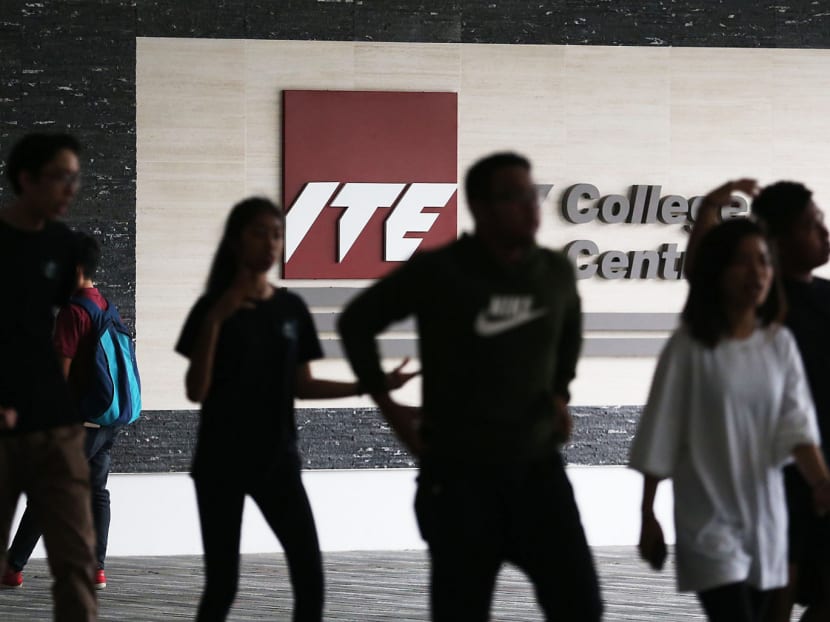New grant to cover only courses linked to work skills
SINGAPORE — The government grant to be given out to all Singaporeans aged 25 and older for self-improvement can be used to pay for all courses, as long as these are related to work skills and supported by public agencies or offered by various local post-secondary institutions.

Courses offered by ITEs, polytechnics and autonomous universities are eligible under the grant. Photo: Wee Teck Hian
SINGAPORE — The government grant to be given out to all Singaporeans aged 25 and older for self-improvement can be used to pay for all courses, as long as these are related to work skills and supported by public agencies or offered by various local post-secondary institutions.
These courses need not be related to their current jobs and the grant can also be used to pay for second degrees. Examples include courses subsidised by the Singapore Workforce Development Agency (WDA), or offered by ITEs, polytechnics and autonomous universities. Selected courses at SIM University, LASALLE College of the Arts and Nanyang Academy of Fine Arts are also eligible. These details of what the SkillsFuture Credit can be spent on were released yesterday by the SkillsFuture secretariat.
Finance Minister Tharman Shanmugaratnam, in his Budget speech on Monday, said all citizens aged at least 25 will get S$500 credited to them next year to support lifelong learning. Periodic top-ups will come later.
More than two million people are set to receive the grant, which will not expire in the first quarter.
Currently, the average fees of WDA-subsidised courses for professionals, managers and executives (PMEs) are about S$680.
Responding to the details, some felt that there should not be any restrictions on the use of the credits and people should be allowed to use them for courses unrelated to work skills. Ngee Ann Polytechnic final-year biomedical science student Esther Tan, 20, said it would be good if an individual can make use of the credits to upgrade themselves such as by learning a new hobby or language.
On the other hand, administrative executive Adeline Ng, 50, was concerned that some people might abuse the system if no restrictions were set.
Meanwhile, the secretariat also revealed more details on the roughly 2,000 study awards and 100 fellowships to be given out annually to encourage individuals to deepen their skills. The study awards will give up to S$5,000 to an individual to take classes or courses to develop specialist skills that will be required by Singapore’s future growth clusters, such as those of software developers or satellite engineers. These will be given out in phases starting this year.
Recipients of the fellowships — aimed at helping Singaporeans become masters in their fields — will get cash awards of S$10,000 to offset craft- or knowledge-based training. Those who have “significant” industry or occupational experience and have a track record of developing their skills will be eligible for these fellowships, which will start next year.
The money given under both the study awards and fellowships will not come with bonds.
Separately, employers who have made significant efforts to invest in employee training and support the SkillsFuture effort through the development of structured skills-based career pathways for their employees will also be given non-monetary, recognition awards.
Further details on the qualifying and assessment criteria for the fellowships and employer awards will be released in due course through the SkillsFuture website, said the WDA.
With the roll-out of the SkillsFuture Credit, the Ministry of Education will bring forward the closure of the Post-Secondary Education Account (PSEA) from the age of 30 to 25, although individuals can opt against the earlier closure if they wish to use the monies to further their studies at approved publicly-funded institutions. As with the current practice, monies remaining in the PSEA will be transferred to the individual’s Central Provident Fund Ordinary Account.






